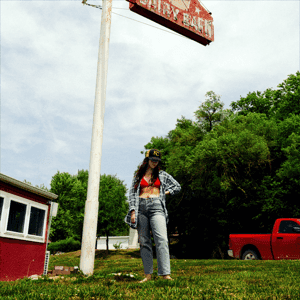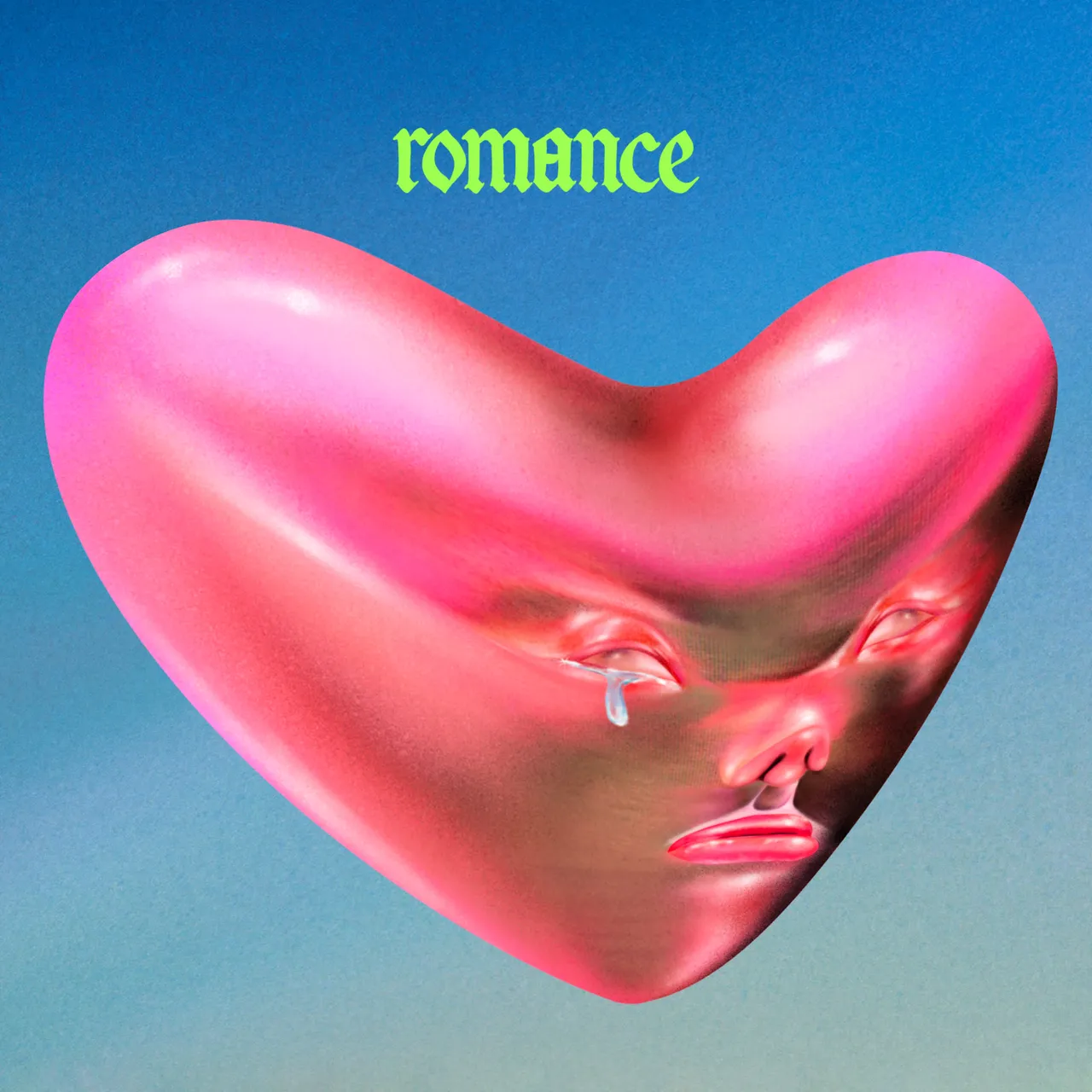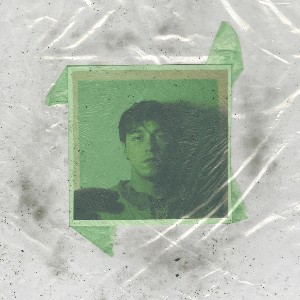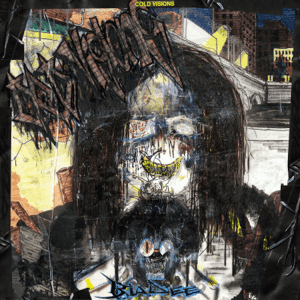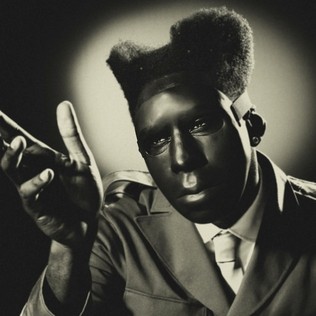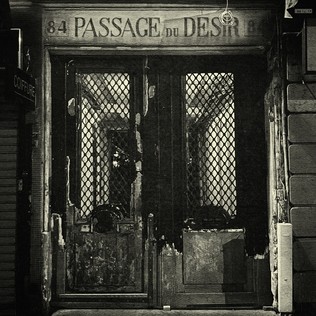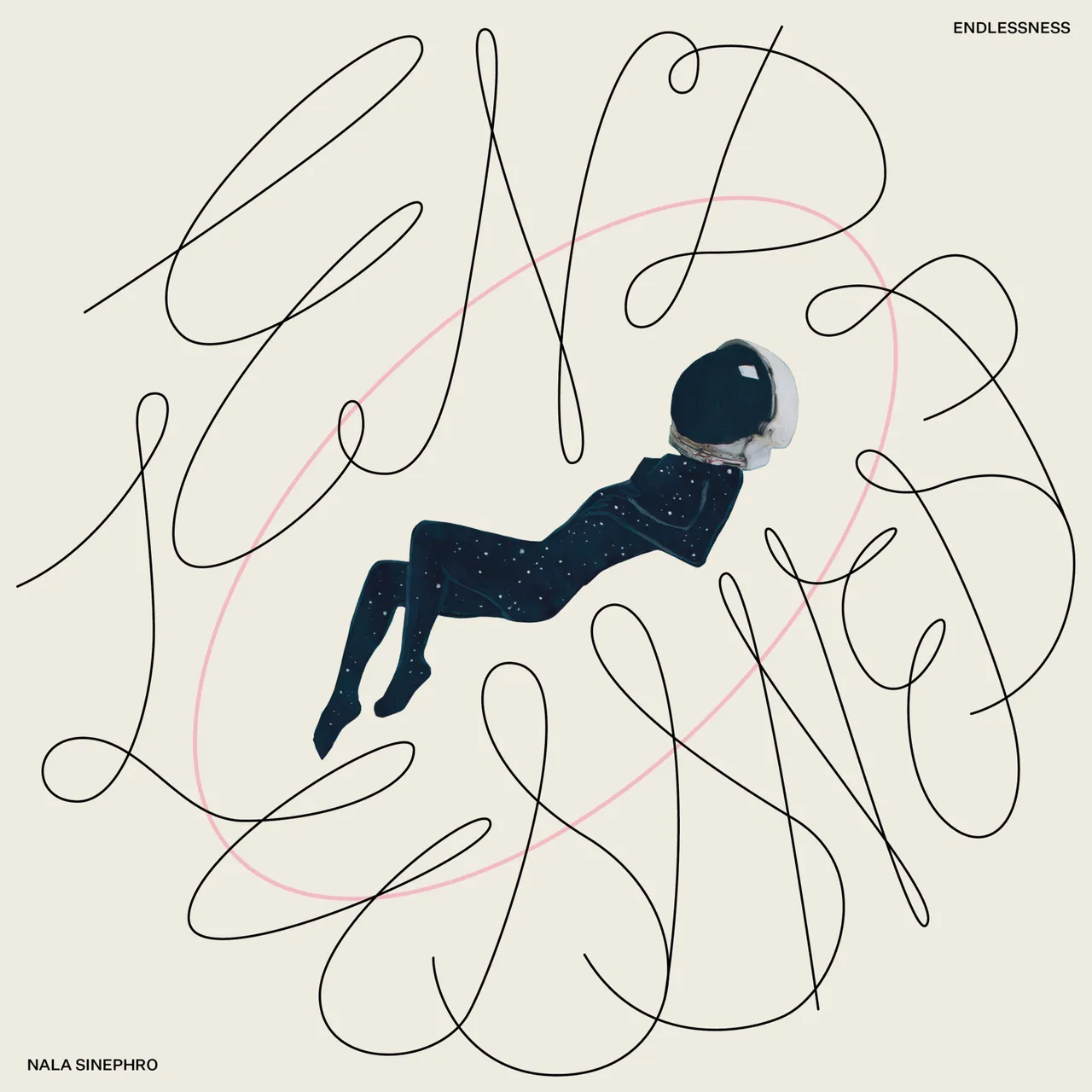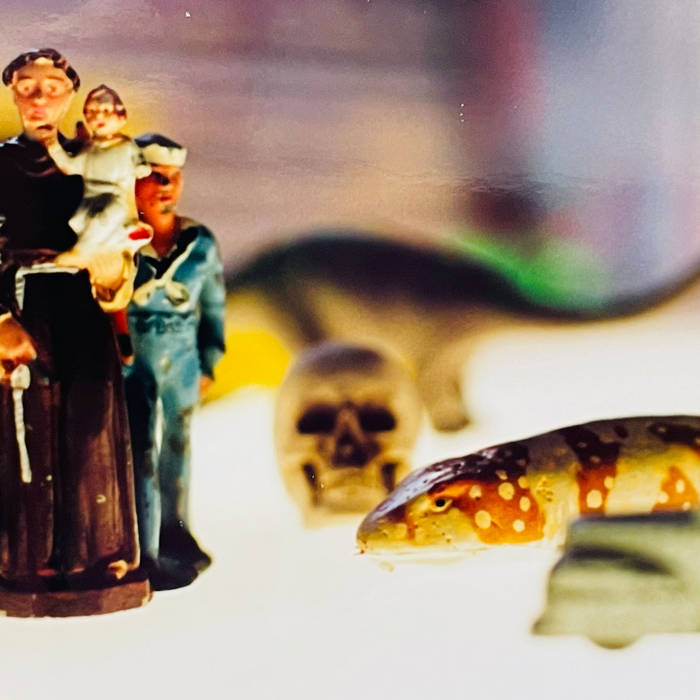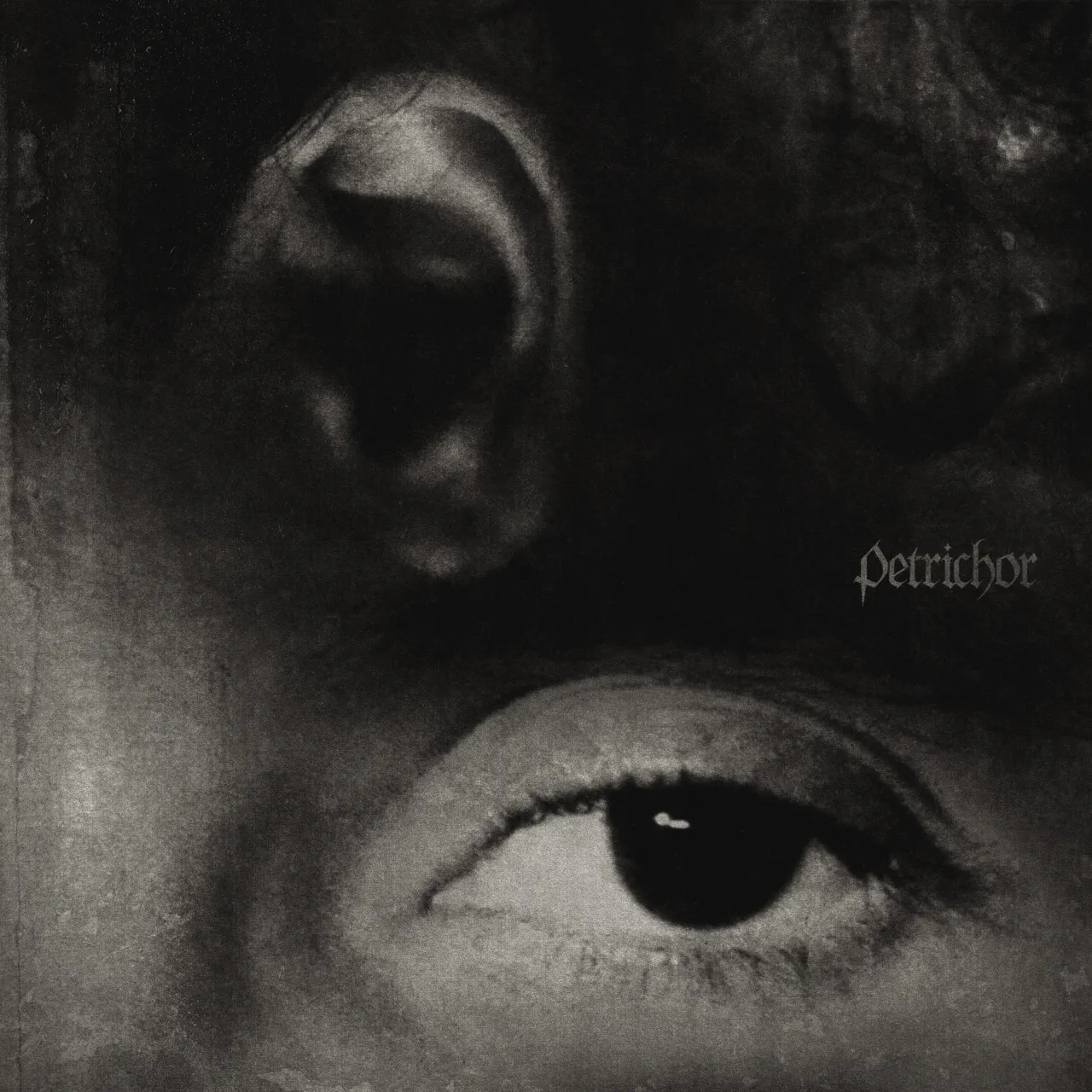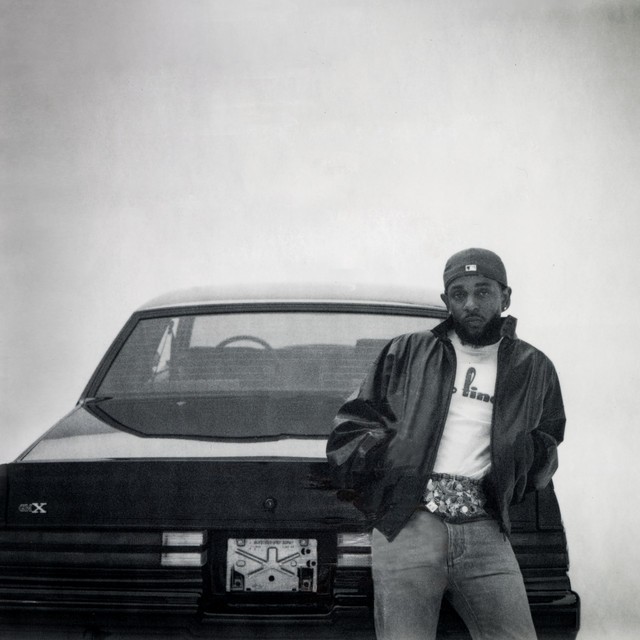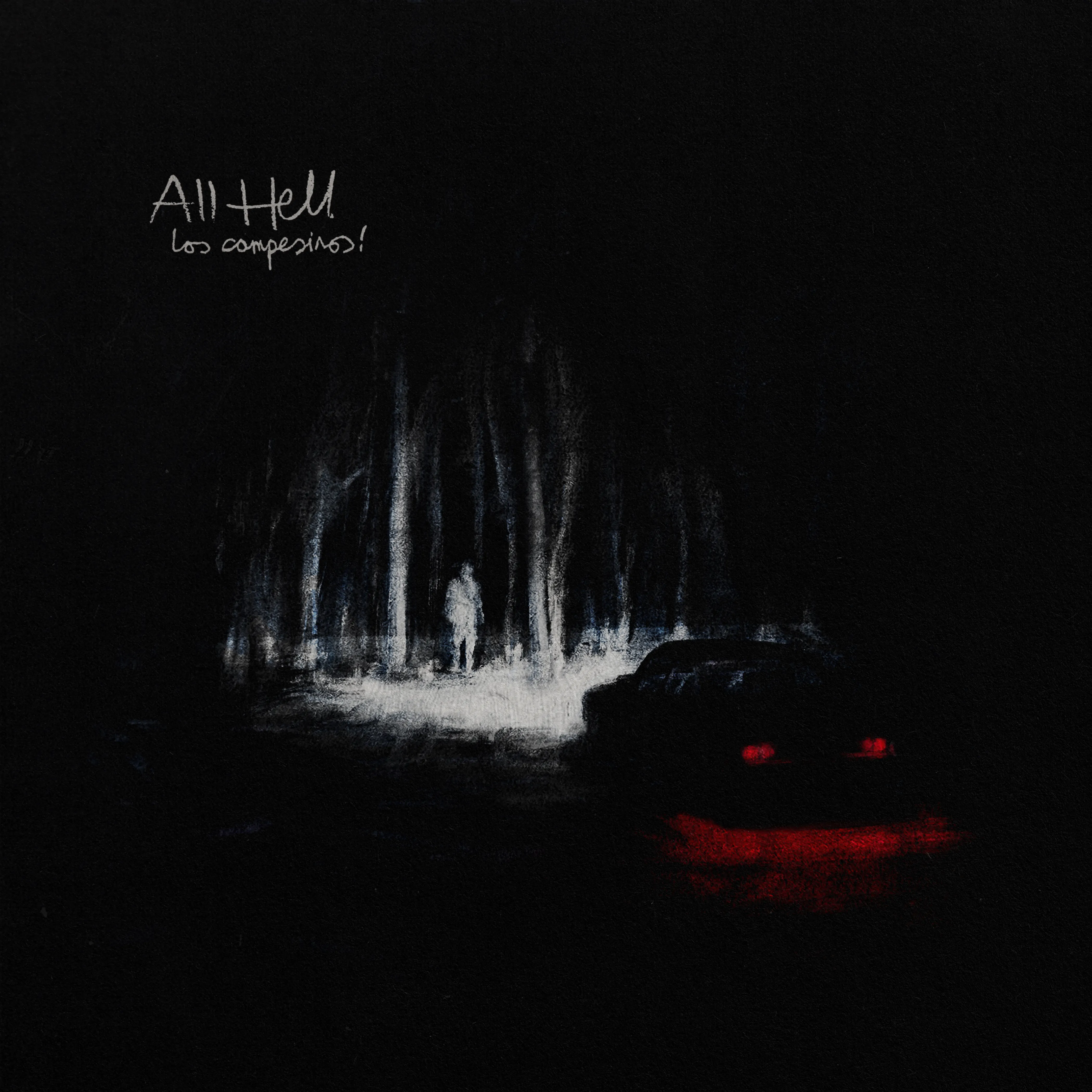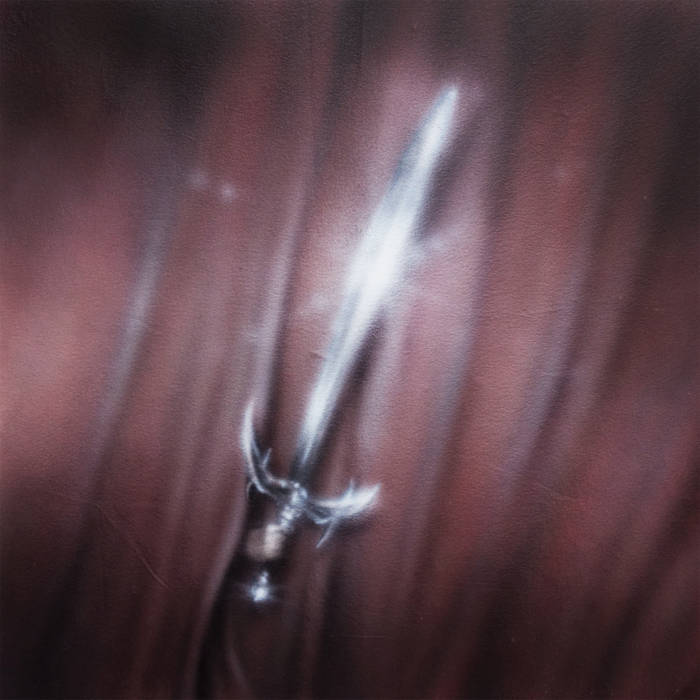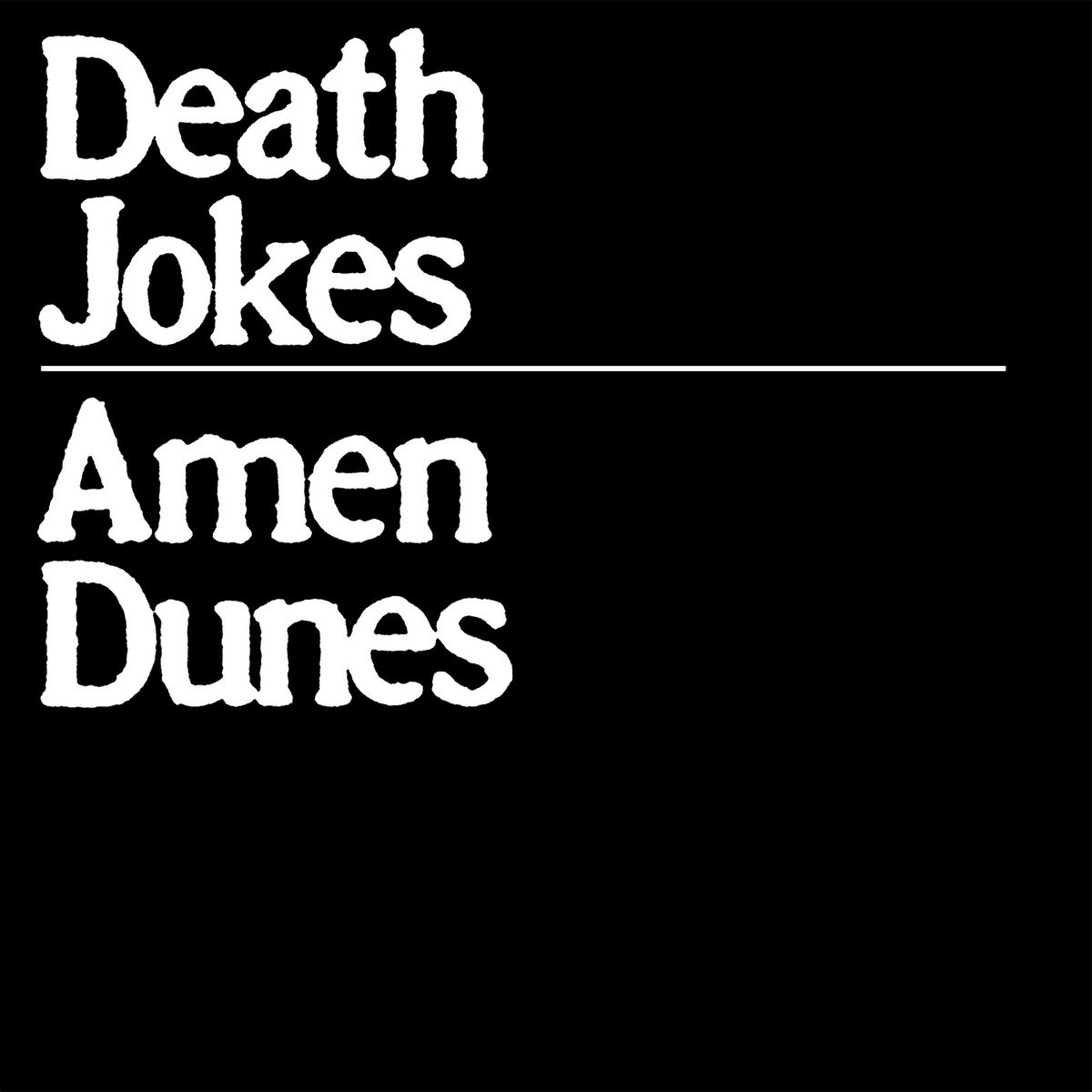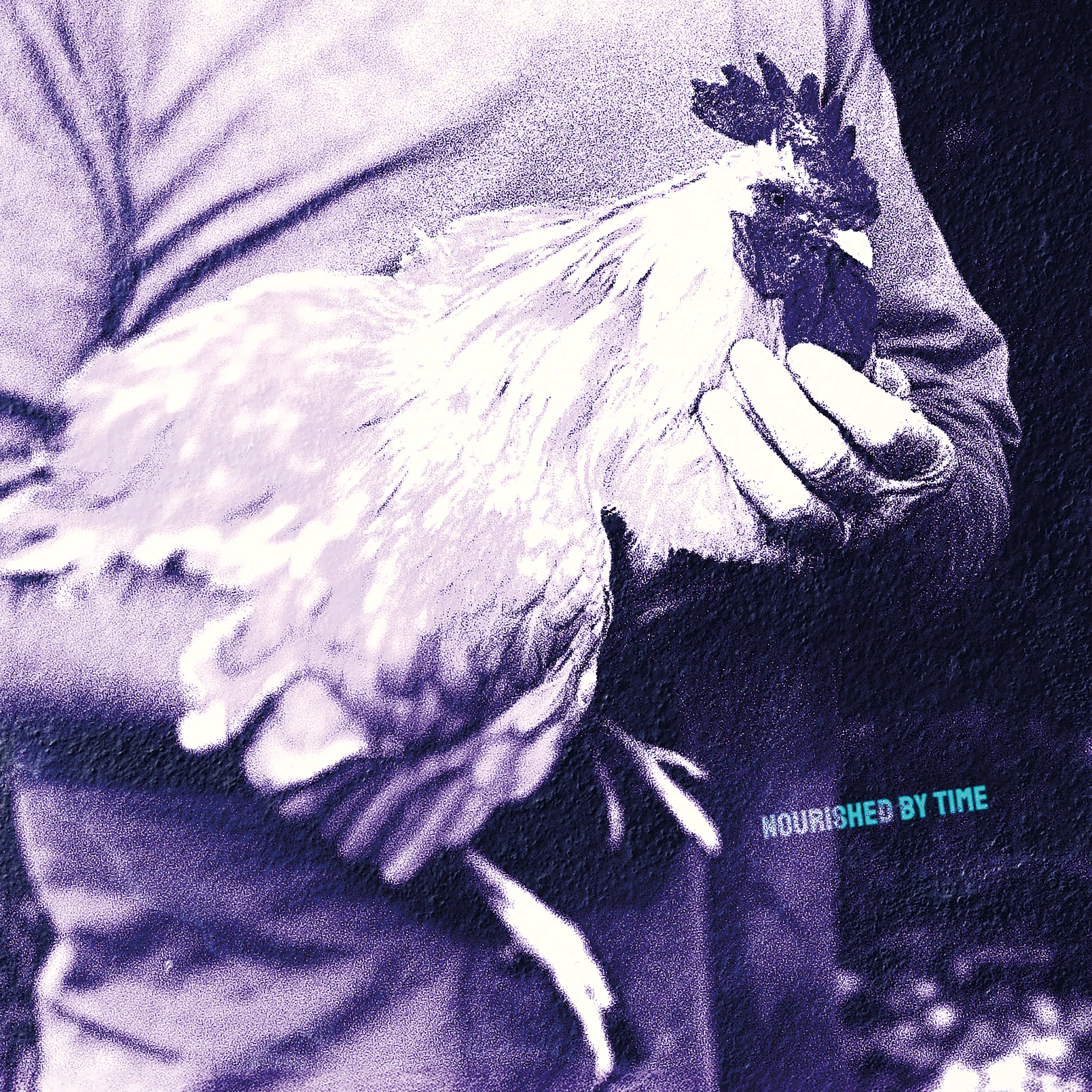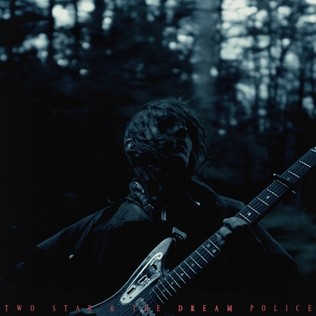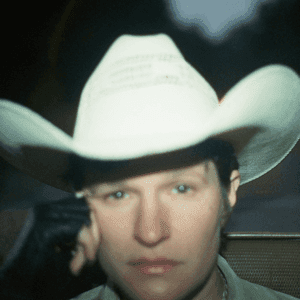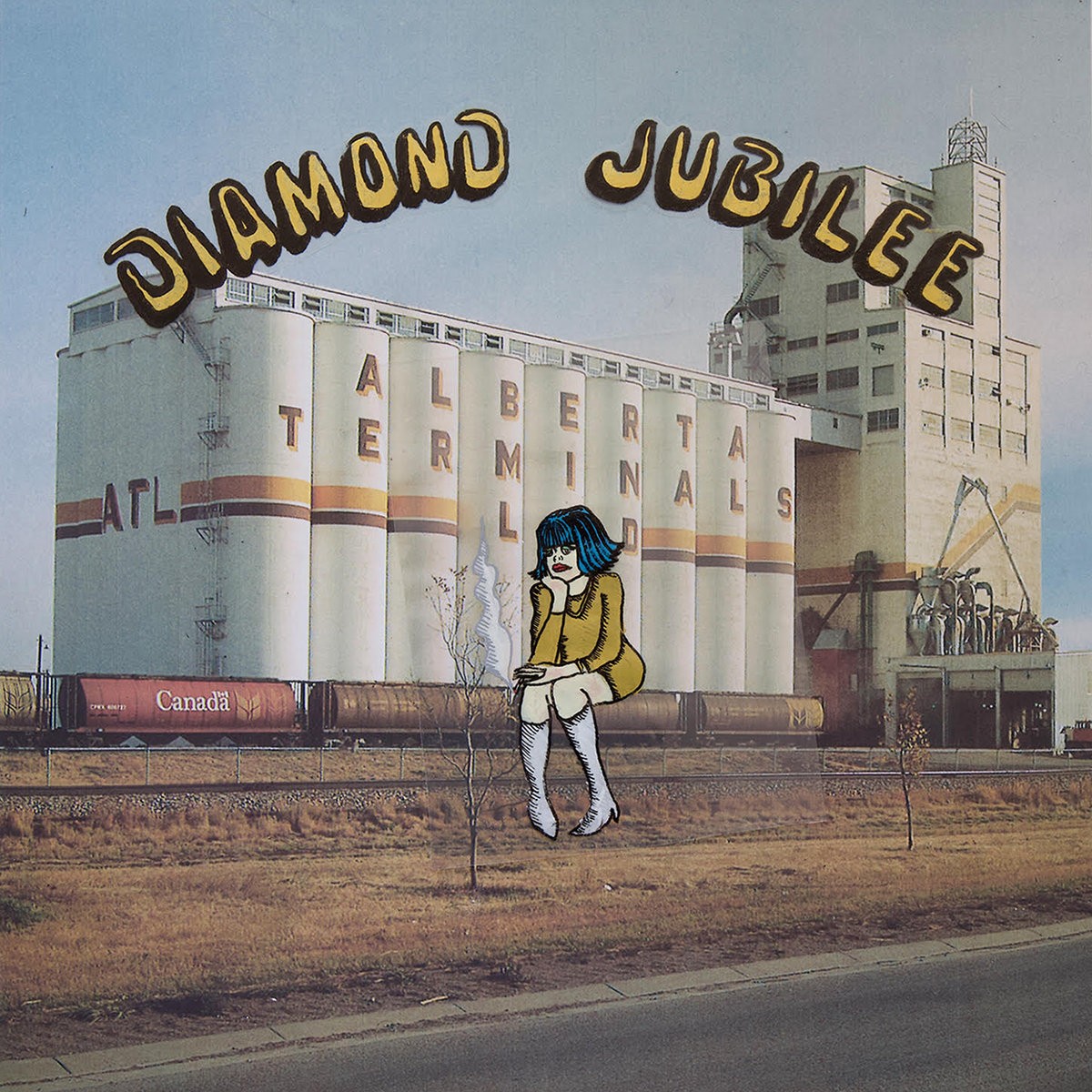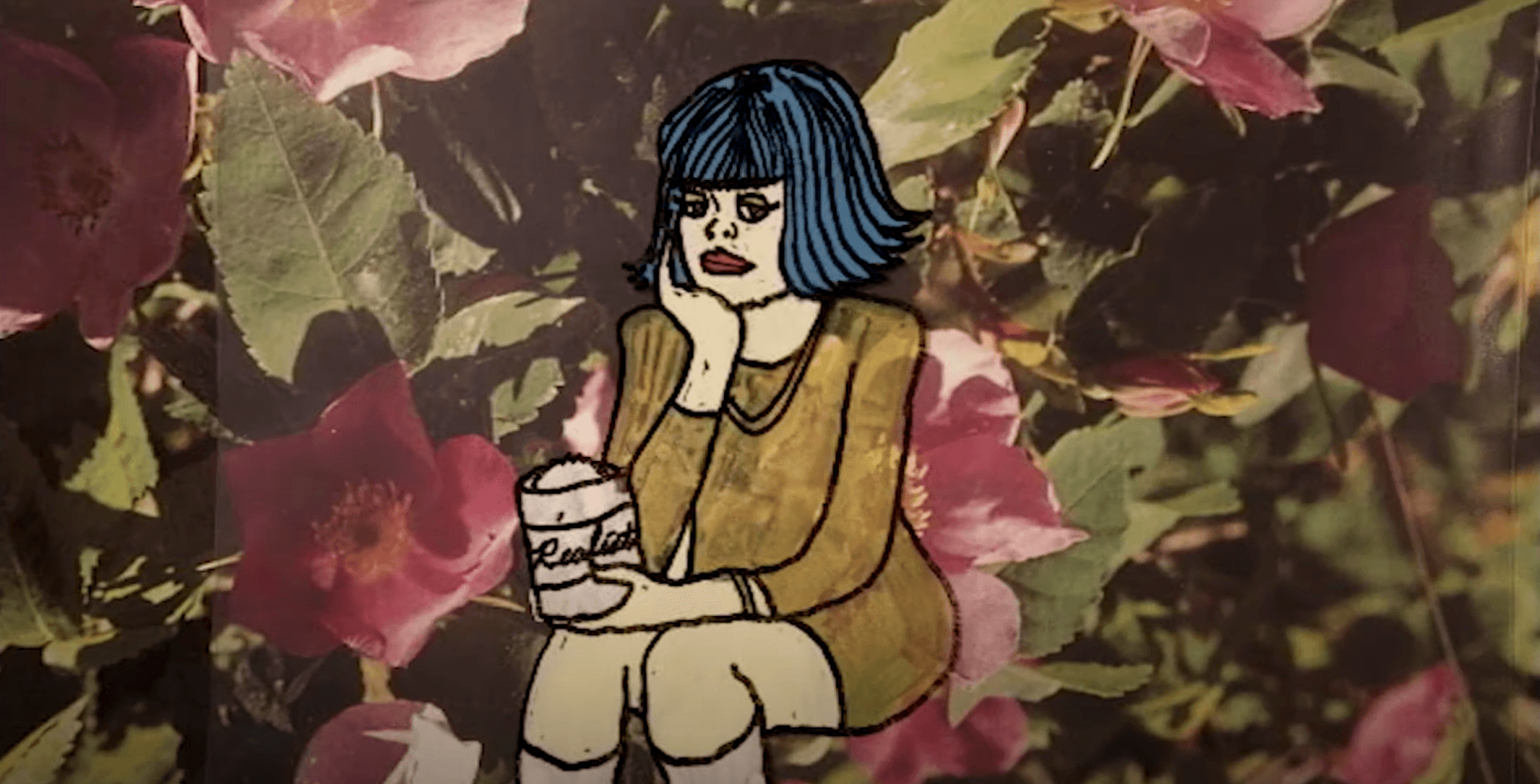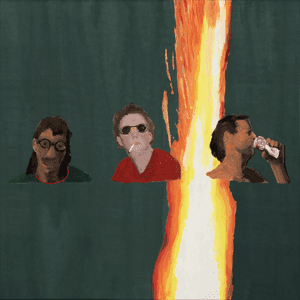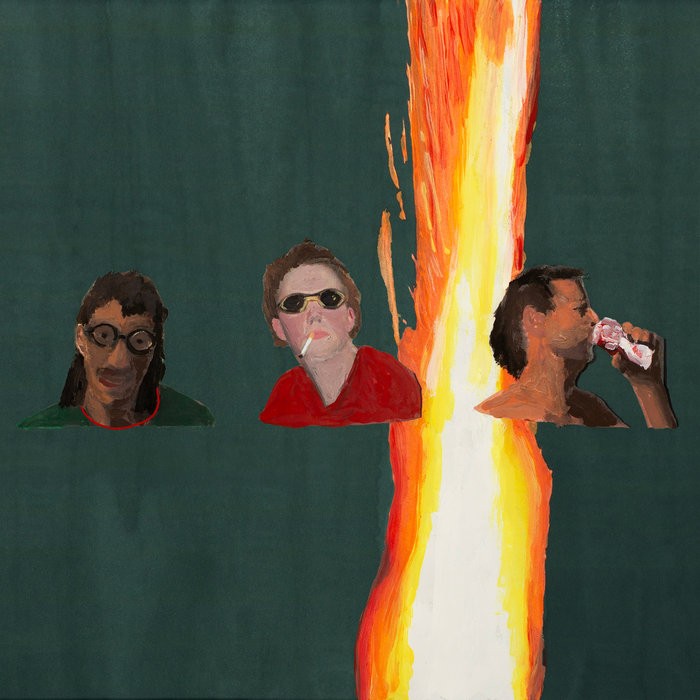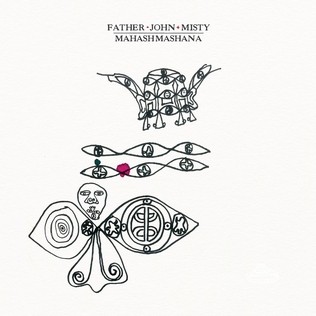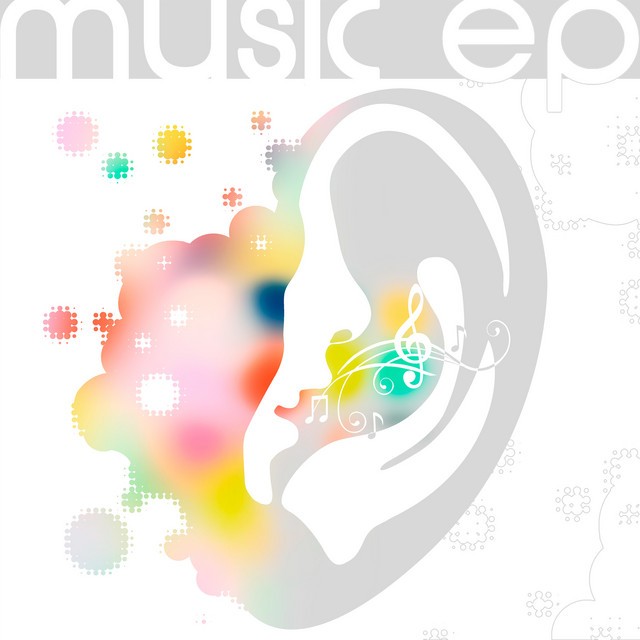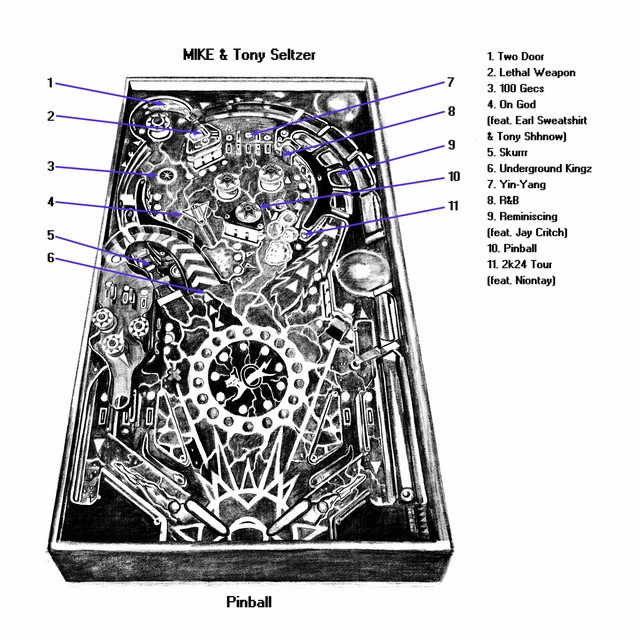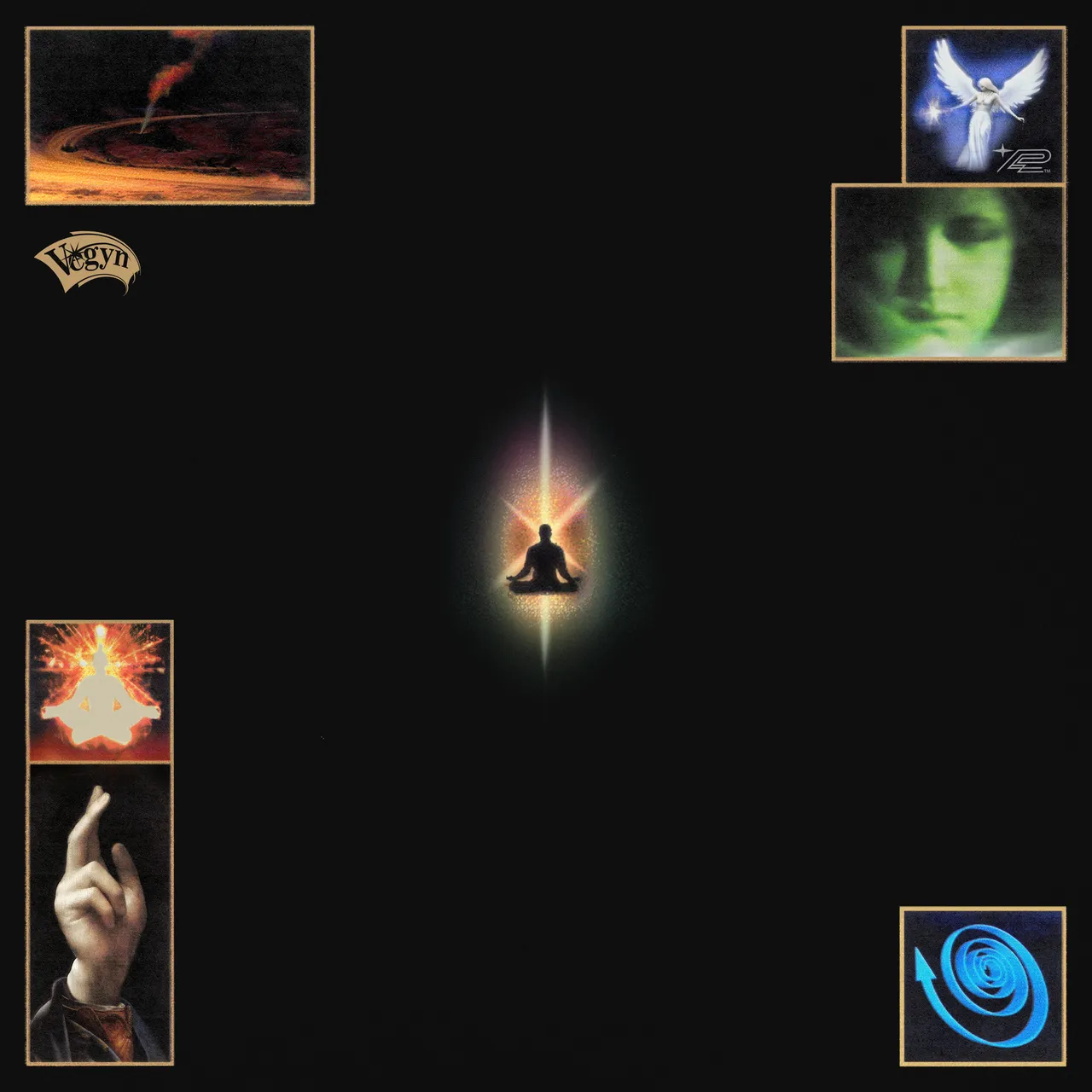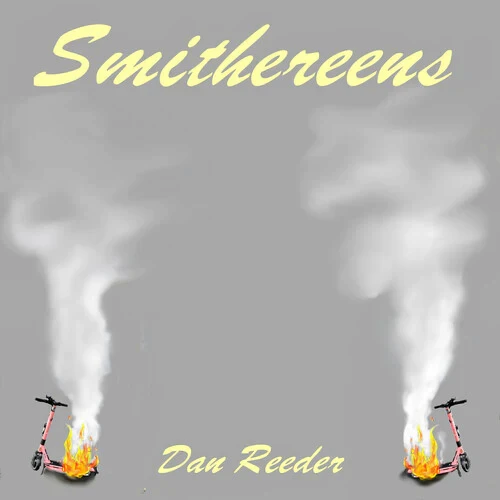






Tigers Blood
Waxahatchee
Time moves too quickly now. It seems like just the other day that Katie Crutchfield announced herself to the wider world (at least to me and my peers) with St. Cloud. For me, it was something of a crossover smash, so undeniably warm and well-written that it busted open the saloon doors to my growing love for americana. And now to have Crutchfield seem like an elder in the scene, offering a powerful cosign for our young hero-in-the-making Mr. MJ Lenderman (who features across the project on vocals and guitar, and also *wink* later in this list)…it’s somewhat disorienting.
But it makes sense. Tigers Blood excels for the same reason that St. Cloud felt like an instant classic. Crutchfield still sounds like an unshakeable pillar. You don’t reach that status without toil and reflection. Almost any line shows off her sharp and mighty pen, but she’s at her most revelatory when she’s shedding new light on closed chapters. Take a look at this quatrain from “Evil Spawn,” about a past relationship: “If we stand out in some wild city street/Dodging every car, every thief, and disease/Catching tiny crumbs in the heartless breeze/Say we’re tough as nails, say we’re both naive.” We often work way too hard for something that no longer serves us. “Bored” is an anthem about this kind of escape–about when all of your justifications for staying in a shitty situation start to become laughably recursive. Crutchfield is someone who will show you her bruises but make no excuses for not dusting herself off and getting back in the ring. Tigers Blood is full of these wounded and defiant country rockers from an expert at her craft. ~Noah
Silence Is Loud
Nia Archives
The 2020s have seen a renaissance in UK-born club music–jungle, dnb, UKG. That’s not to say that Nia Archives is just a part of a wave. Here is what sets Silence Is Loud apart. It isn’t common to have a great, club-ready full-length dance album of any subgenre. Whether on Bandcamp or in record stores, a vast majority of dance music is packaged as a-side/b-side singles which DJs can slot into their sets. (It’s why when Pitchfork does their year-end genre roundups it’s “best rock albums,” “best rap albums,” but “best electronic music). The classic-jungle-indebted productions range from effervescent to ecstatic. There is more than enough variety in this album to justify itself.
It is even less common to have original singing all over a club-ready full-length dance album. When Nia performs these songs (which I've seen her do twice now), she is behind the decks mixing the tracks while simultaneously clutching a microphone. It’s wizardry.
It is even less common that said original singing (alloveraclubreadyfulllengthdancealbum) is genuinely touching and insightful. She writes about the thrill of safe vulnerability (“Cards on the Table”), the unsteadiness of a one-foot-out situationship (“Unfinished Business”), and the persistent thorn of feeling uncomfy with your family (“F.A.M.I.L.Y.”), just to name a few. Nia Archives clearly cares deeply about her art, and so do I. ~Noah
Forever
Charly Bliss
Across their three studio albums to date, Brooklyn foursome Charly Bliss have been honing their own unique brand of pristine power-pop, crafting a distinct sound that is equal parts Weezer, Letters to Cleo and Carly Rae Jepsen. Forever is their most polished work to date, a streamlined set of 12 anthemic pop songs that clocks in at just over 30 minutes. The choruses soar, the bridges devastate, and every nook and cranny of the mix is filled with a hook. Through it all, lead singer Eva Hendricks delivers tale after tale of thwarted romance and lost youth, with enough humor and self-awareness to keep things from ever becoming maudlin. High-energy standouts, “Calling You Out” and “Back There Now” ensure the album is endlessly repeatable, while the starry-eyed and redemptive closer, "Last First Kiss,” offers some much-needed hope at the end of the tunnel. ~Steven
Romance
Fontaines D.C.
I became a Fontaines D.C. fan two minutes and 37 seconds into “Starburster,” the lead single from the Irish band's fourth album, Romance. Perhaps their most popular song to date, "Starburster" is full of clattering boom-bap drums and swaggering quasi-rapping. But nearly three minutes in, all that disappears, and lush, pillowy strings arrive like a bleary-eyed dawn. It's a brief moment of clarity and peace, during which frontman Grian Chatten sheds all his previous bluster to deliver a moving, prayer-like bridge. The turn is disarming and unexpected, and sets the tone for the stellar and unpredictable album of literary post-punk that follows.
There are no clunkers here: the searing “Here's the Thing” blends catchy vocal hooks with fuzzy guitar riffs, the grandiose centerpiece “In the Modern World” adds a healthy dose of melodrama to the mix, while the unexpectedly poignant closer “Favourite” glows with warmth and nostalgia. Romance is a testament to Fontaines D.C.'s rising level of ambition, and proof that they've got the songwriting and musicianship to back it up. ~Steven
Imaginal Disk
Magdalena Bay
Magdalena Bay’s high concept art pop album is about a character who receives a disk-in-the-head update, but her body rejects it and she has to relearn how to be human from scratch. It does feel like you’re being told a story, even if the plot is fuzzy. For one, the album does have bits of discernable narrative and moodsetting. I particularly enjoy the 90’s New Age vibe conjured on "True Blue Interlude," which I assume is the rejected update–an airbrushed promise of utopian wellness. I also love how the five-song stretch from “Death & Romance” through to “Tunnel Vision” flows like a seamless mixtape. Each track is a standalone banger, and the songs boot up and power down straight into each other.
This is also the section of the album where I can most feel the thematic arc. There's naivete. Feelings are overshot, need recalibration. Everything seems life or death because it’s unclear what the consequences of anything are. The narrator does finally take responsibility for their actions and see a path forward. If this sounds familiar, it’s because that’s how any good coming of age story works, essentially. It isn’t endemic to the sci-fi genre. But for Mag Bay, world-building has always been as important as the characters living inside of it. And this one—seemingly built of synthesizer alone—is a rush. It sounds full of innocent wonder, pain, and redemption. ~Noah
Mika's Laundry
Matt Champion
Rewind to the halcyon days of Brockhampton. Kevin was the creative director; Dom was the technical wordsmith; Merlyn was the wildcard. Everyone had a role to play. Though he was a talented rapper with obvious swagger, it was never clear to me what Matt Champion was specifically bringing to the table.
It turns out he has absolutely no interest in playing a single role. He has a consistent voice–that Texas rasp–which shines throughout, whether rapping or singing; but genre-wise, Mika’s Laundry travels wide. The production is creative and engaging in all corners. “Slow Motion,” the duet with JENNIE of Blackpink, is a highlight. It seems almost too pretty, too done-up, but then the mirror shatters as it glitches straight into a skittering breakbeat.
Some of the strongest moments are when Champion fully commits to writing a catchy song. He has a great ear for hooks and melodies. “Code Red” does a fine job leaning his steely rapping up against his layered vocals, creating something with plenty of character that still goes down easy. “Slug” is oddball bop of the year. It’s slinky, muddy, and funky. There’s big fat synth bass, woodblock, and literal squawking. When he launches himself into a deliriously high register for the chorus, asking “won’t you be my slug?,” you know exactly what he means. Maybe his next effort will go farther down this lane, sharpening his indie pop, but then again, maybe his art has no one particular sound. I see no problem with that. It sounds great. ~Noah
Cold Visions
Bladee
The songcraft on Bladee’s Cold Visions feels like level design for a fast-paced wintry side scroller. The constant stream of sound effects and ad-libs sound like coins and powerup tokens he’s collecting. Sometimes he smashes through one and comes out blinking rainbow. As soon as you’re done with one level, there’s another one–30, to be precise. On the surface, it can feel like a screentime addiction, or even like an attention deficit. But this would be to ignore Bladee’s complete vision.
The bitter, hard-hitting stuff is often great (“DON’T WANNA HANG OUT,” “END OF THE ROAD BOYZ”), but we must also acknowledge the sad boy cloud rap balladry (“FLATLINE,” “BAD 4 BUSINESS”) and the wistful diarism (“MESSAGE TO MYSELF,” “CANT END ON A LOSS [OUTRO]”) on display here. Bladee gives us a lot of himself. He’s completely open-hearted in an unforgiving world. When you take the time to really listen to what he’s saying, his words live in the magnificent soup of online brain rot, poetry, and just a dash of ELL. He has a willingness to simplify to bare feeling or chase down elaborate metaphor, depending on what the moment requires. Bladee warps the space for self-reflection out of the very matrix that makes him so anxious and paranoid. There’s no need to escape. In our attention economy, we all just have to learn to listen for what really matters. ~Noah
SABLE, - EP
Bon Iver
Clocking in at just over 12 minutes, Bon Iver's SABLE, - EP is a brief but moving return to form. The EP's three songs chart a path from regret to redemption over spare acoustic arrangements reminiscent of Bon Iver's indie folk beginnings. “Things Behind Things Behind Things” opens the EP in the throes of anxiety, with Justin Vernon confessing, seemingly in defeat, that “I would like the feeling gone.” The emotional arc of the remaining two songs can be traced via the first lines of each: “S P E Y S I D E” begins with the sobering admission that “I know now that I can't make good, how I wish I could” while the nearly acapella finale “Awards Season” opens with a hopeful declaration of resilience: “I can handle way more than I can handle.”
Ever since the Bon Iver project began in 2006, in that oft-mythologized winter cabin in northern Wisconsin, it has been a vehicle for Justin Vernon to transfigure pain into beauty. SABLE is the most concise manifestation of that transfiguration to date, a brilliantly simple set of songs that earnestly documents the challenges of finding grace for yourself, and the ultimate beauty of accepting your own forgiveness. ~Steven
Short n' Sweet
Sabrina Carpenter
It's funny to think that, just a few years ago, Sabrina Carpenter was best known for being “that blonde girl” in Olivia Rodgrigo's breakout single. Even as Sabrina's early singles “Nonsense” and “Feather” started to pick up steam shortly thereafter, it remained a genuine question mark as to whether she would emerge from the shadow of her High School Musical: The Musical: The Series co-star, and grow beyond the Disney Channel love triangle she was rumored to be a part of.
Flash forward to 2024, and Sabrina Carpenter has had the type of year that every Disney Channel starlet dreams of. Her audience has grown from suburban tweenie-boppers to basically the entire planet, and she's operating with the kind of creative freedom most artists (especially former Disney Channel artists) have to spend years earning. Thanks to the strength of its infectious lead single “Espresso,” with its fat, disco-indebted bassline and earworm-y chorus, Short n’ Sweet, Sabrina's sixth album and her second with Island records, made her absolutely inescapable in 2024.
But what's so impressive about Short n’ Sweet is that it's not just a vehicle for a few hit singles: it's a consistently great album that features track after track of top-notch pop. “Taste” somehow turns being a rebound into a position of strength, while the giddy, 80s-inspired “Juno” brims with libidinous energy. Across the board, Short n’ Sweet exudes the confidence and competence of a veteran, and with songwriting this clever and production this slick, Sabrina Carpenter is quickly earning her spot in pop music’s top echelon. ~Steven
Chromakopia
Tyler, The Creator
This man loves a theme. Ever since upping his level of ambition considerably with 2017’s landmark album Flower Boy, Tyler Okonma has been using each successive studio album to dig into new alter egos and sprawling, cinematic narratives. Chromakopia is Tyler’s latest installment in this series of concept albums, and his most personal one to date. When describing the themes of the album during a listening event in October, Tyler shared that Chromakopia originally focused on his upbringing in Inglewood, but ultimately turned into an exploration of “a bunch of shit my mom told me as a kid.” Indeed, his mom, Bonita Smith, serves as the album’s narrator, adding color commentary over what plays like a loose timeline of Tyler’s personal experiences.
Then there’s also some protagonist, named St. Chroma? And some overarching theme about not dimming your light for anybody? Frankly, it’s all a little bit confusing, and ultimately not all that important. At the end of the day, Tyler, The Creator albums are not Christopher Nolan movies; there is no puzzle to solve here. They hold together based on the strength of the music, on Tyler’s rapping ability, on this man’s sheer charisma. And as with every great Tyler album, Chromakopia, seems barely able to contain the energy of its creator. “Sticky” is perhaps the best example, with Tyler trading verses with Glorilla, Sexyy Red and Lil Wayne over pummeling drums and an arena sized horn section, but “Rah Tah Tah” and the Doechii-featuring “Balloon” are similarly boisterous and explosive. After Chromakopia, Tyler’s next direction remains anyone’s guess; but based on his last four albums, all consistently excellent and unexpected, I’m willing to trust his instincts. ~Steven
Passage Du Desir
Johnny Blue Skies
Across all of his studio albums, Sturgill Simpson has reliably sidestepped the tropes and pitfalls of mainstream country music. In the late 2010s, for instance, while his country contemporaries were taking turns describing hometown bars and pickup truck hookups, Simpson was crafting a concept album for his newborn son, the stellar A Sailor's Guide to Earth (2016). It was delightfully weird, as indebted to 1960s soul music and psychedelic rock as it was to Willie Nelson and Waylon Jennings, with a surprisingly moving cover of Nirvana's “In Bloom” as its centerpiece. Sailor's Guide also earned him the Grammy for Best Country Album that year, and served as a wake-up call for all the country fans who had not been paying close enough attention to this ex-Navy Kentuckian redefining “outlaw country” for the new millennium.
Passage Du Desir, Simpson's first album under his new moniker Johnny Blue Skies solidifies his place in the outlaw country pantheon. It's an effective summary of everything he does best, and a further distillation of one of the most distinct artistic identities operating in country music today. The Tom Petty-style heartland rock of "Right Kind of Dream” is simultaneously elegant and electric, while the bluesy “If the Sun Never Rises Again” seems destined to close down bars for years to come. There's also the epic nine-minute closer “One for the Road,” which deploys a lush string section and guitar solos galore to soundtrack some good ol’ fashioned heartbreak. The album is a twangy tour-de-force of country songwriting and evidence that, eight albums in, Sturgill Simpson still hasn't lost a step. ~Steven
Endlessness
Nala Sinephro
Ideas pour out of each and every millisecond of Endlessness. It’s infinitely detailed and woven together. In truth, when I direct my focus to one instrument, I’ll soon notice a different instrument which is also watching that first instrument, is in lockstep with it, and I can keep hopping along like that, riding whatever strands of conversation I like. There’s a moment a little more than a third of the way through “Continuum 2” where I’m grabbed by what sounds like someone letting air out of a balloon in short bursts, and then multitracking that noise. A trumpet waits patiently on a single note for this to end, and then after the band punctuates the low end and holds space, a piano hurriedly builds a staircase for the trumpet to climb up and out. The synth and the drums on “Continuum 10” are in an elite partner dance, holding each other tight with room for personal flourishes. I could give you a whole timestamped attention log which would change upon every listen.
I am largely uneducated in Sinephro’s specific ancestors, in her language, both in the worlds of jazz and ambient electronics. I don’t know all of the instruments and digital tools being used. I can’t give you much of a contextual narrative. Just suffice it to say that when I listen to Endlessness I consistently drop what I’m doing to sit back with my jaw dropped, taking it all in. In fact, it’s far better consumed whilst doing nothing else. It’s a really, really beautiful album. ~Noah
Blair II
Blair
Blair is a young band based in Brooklyn, and you never know where they’re going next on their debut (yes, debut) Blair II, but you know damn well they’re going to stay there for a bit if it’s any good. They explore right out of the gate. The opening track, “Propeller,” introduces the band with some sweet shoegaze and autotune-glazed hardcore. Then, about halfway through, they gently deposit you into a melodic rap verse where they rhyme “kryptonite” with “stay at my crib tonight,” take Citi Bikes up to the highest point in town, and paraglide down to a drugstore to get Visine for their weed-induced red eyes.
The experimentation is pushed to its limit on “Beefnbrocs,” which features Doris, a kindred spirit associated with New-York-rapper Mike’s 10k label, who put out a dazzling compilation this year of his own weirdo, minimalist freestyles. This track has no solid ground until the last 30 seconds when it hits a climax of stuttering drum programming, seemingly just for the fun of it.
But whether through features or their own doing, Blair retain a rapper’s sensibility for riding a good pocket. “Got2getoveru” is the most naked example, a relatively simple vamp that drops briefly into a sweeping bridge before coming right back home. It’s completely addicting. On the back half of the album, grand song structures house the simple pleasures of finding a good flow and chilling there. There’s a balance here. It’s immensely enjoyable to listen to Blair discover so much newness and then dally in their youth, soaking it up. ~Noah
Petrichor
070 Shake
Petrichor is a time-traveling space opera. In the opening track, 070 Shake beckons us in: “Baby, you should come with me/I don't care how lost we get.” This is her ethos throughout. Though most of us were introduced to Shake through her goosebump-inducing bellows about numbness on Ye’s “Ghost Town,” here all of her emotions are seen through to their climactic conclusions. (Perhaps this extremity is what sometimes leads to the need for numbness).
The set-dressing is otherworldly. Let me paint it how I see it. The beginning of “Pieces of You” sounds like soldiers marching into galactic battle. Then, by the verses of Vagabond, those soldiers have turned into tankard-swilling warriors in some Beowolfian mead hall, with Shake up on a table leading them in chant. Then there are the brilliant tracks I have no worldly reference for. There’s “Elephant,” where the scope of her omniscience (“I can be your elephant/I remember everything”) is somehow rendered into both something sinister and the most danceable song on the album. There’s also the mounting splendor of “Into Your Garden,” which begins with a piano ballad and ends in slurred, snarled rap verses over cavernous production. “Give in to the consequence of letting me in,” Shake pleas on the chorus of “Vagabond.” Have the courage to bring your walls down. This music will meet you there. ~Noah
GNX
Kendrick Lamar
Everyone is allowed to have fun every once in a while, even Kendrick Lamar. And boy, does it sound like Kendrick is having a real ball on GNX. I mean, to be fair, after decimating Drake in the most high-profile rap beef in decades, securing the 2025 Super Bowl Halftime Show, and scoring his biggest hit ever with “Not Like Us,” the man's got a lot to celebrate.
I'm happy for him, and grateful too, because I don't think I could take another Mr. Morale and the Big Steppers. As fascinating as that album was, it was undoubtedly the least fun entry in Lamar's oeuvre (“We Cry Together” anyone?). And following Mr. Morale's density, complexity and sheer length, GNX plays like a breath of fresh air.
At its best, GNX is victory lap after booty-shaking victory lap. “squabble up” and “hey now” both practically bounce out of the speakers, each one brimming with charisma and energy. Meanwhile, Mustard's production on “tv off” is nearly as mischievous and infectious as his work on “Not Like Us,” earning him perhaps the most emphatic producer shout-out in rap music history (mustaaaaaaard!!). Sure, GNX is not going to crack my top three Kendrick albums any time soon, and I would hesitate to even mention it in the same breath as good kid m.A.A.d. city, To Pimp a Butterfly or DAMN. But it was also one of the most fun listening experiences I had in 2024, and that's gotta count for something. And look: every once in a while, Kendrick Lamar deserves to bust it down as much as the rest of us. ~Steven
All Hell
Los Campesinos!
Ever since breaking out in the late 2000s with their debut album Hold on Now, Youngster... and its ebullient, zeitgeist-y lead single "You! Me! Dancing!," the seven-piece Welsh band Los Campesinos! has been consistently delivering album after album of anthemic, heart-on-your-sleeve indie rock. And All Hell may be their best one yet. The songwriting is idiosyncratic and impeccable, full of brilliant turns of phrase (“pooling pennies for the coin-op guillotine”), efficient scene-setters (“two sounds collide upon the breeze / Sunday service, Sunday league”), and arresting, clear-eyed epiphanies (“you're the only thought I've got left in my head”). Meanwhile, the band's arrangements are intricate, grandiose and affecting: “Holy Smoke,” for instance, is a catchy pop-punk adrenaline rush, while the cathartic and redemptive “Long Throes” calls to mind peak-Arcade Fire.
It's clear that, nearly 20 years in, Los Campesinos! haven't lost an ounce of ambition. For them, music still feels like a life-or-death matter, a promise of escape, a means of salvation. And even as the members of this group approach 40, this album makes it clear that they still believe in swinging for the fences. And I, for one, am grateful, because All Hell knocks it out of the park. ~Steven
Hit Me Hard and Soft
Billie Eilish
I didn’t want to like this album as much as I did. In the months leading up to the release of Hit Me Hard and Soft, I was suffering from Billie overexposure. The awkward award show speeches were grating on my nerves and the inescapability of "What Was I Made For” was wearing me down. The last thing I thought I needed was a new Billie Eilish album, and in fact, out of sheer fatigue and disinterest, it took me a couple months to even listen to HMHAS all the way through.
I guess me and Billie just needed some space, because as the tempo started to pick up at the end of "SKINNY” and the drums of "LUNCH” entered the mix on my first proper listen, I found myself sucked back in. It's clear: Billie and Finneas know how to make great, cinematic pop music; they craft songs and albums that build, crest and resolve in highly satisfying ways. And even if Billie's vocal style has now been aped by thousands of aspirational pop girlies, she remains a singular performer – to be able to convincingly sell both the darkly paranoid “CHIHIRO” next to the blissful, openhearted “BIRDS OF A FEATHER” on the same album is no small feat.
HMHAS doesn't feel as much like a step forward as a further distillation of this pair's craft, with multiple career highs packed into an efficient 45 minutes. And in an era defined by albums with 30+ songs and bloated deluxe packages, it's refreshing to hear one of the world's biggest pop stars deliver such a concise and powerful statement.
Suffice it to say, it was enough to win me back. ~Steven
New Last Name
Courting
On New Last Name, Courting hits the sweet spot between sharp post punk and messy emo rock. The album is bursting with emotions in all caps, as Sean Murphy O'Neill loosely charts the course of an old lover's marriage to someone else over the course of the album's nine tracks. There's ecstasy, hurt, longing – all packaged up in riotously fun rock music with hummable hooks and quotable lines; on album-opener “Throw” O’Neill confesses that “if someone's god really made you look that pretty, I would throw my back out praying,” while on mid-album standout “Flex”, he offers: “If you need a bad bitch, I can try.”
It's all good fun, and though the band got some backlash from fans for incorporating bits of hyperpop into their sound (see the not-so-subtle autotune that pops up on the goofy highlight “We Look Good Together”), the albums succeeds mostly because of this anything-goes ethos. After all, the only way these types of teenage emotions are tolerable in late-20s adults (which I’m presuming the members of Courting mostly are) is when you don't take them too seriously. ~Steven
Naya
Dawuna
Listening to the 23-minute Naya feels like flicking through someone’s sketchbook of charcoal drawings in various stages of completion. The pages are thick and subtly bumpy between your fingers; looking at the work, you can clearly see preliminary pencil flicks and underdrawings; and you’ll walk away with fingertips darkened from the black dust still unsettled. It’s an album of textures, at once rough and soft.
Dawuna makes tender, squirmy electro funk akin to D’Angelo or Jai Paul. But the calling card here lies with its ultra lightweight delivery: a minimalist, lofi soundscape with beattape-like sequencing. The delicious grooves juuust barely, ever-so-gently come together without overmixing, like any good pancake batter. The binding agent is a bunch of one-minute-or-less sketches across the album–all crackles, slow downs, and reverses.
Through it all, the songs that stand out here have the down-the-spine ASMR tingle of close-miked care. The gospel hums and springy noodling all over the mix in “Eddie’s Song,” for example, make for a loving scalp massage. And the lonely little synth, the panning fuzz guitar, the whispers on “Work” all add up to something like the intimate, hair-raising pleasure of sticking a q-tip in your ear. It’s all right there. You can feel these songs on your skin. ~Noah
In Waves
Jamie XX
Jamie Smith was always a tastemaker. Ever since his work in the XX making spare and moody indie rock with bandmates Romy and Oliver Sim in the late 2000s, Smith has been at the cutting edge of "cool” music. There was the Gil Scott Heron remix that earned him a Drake production credit in 2012; there was the string of excellent singles that put him on the map as one of the hottest rave producers in London; and of course there was his 2015 magnum opus, In Colour, which helped define 2010s electronic music and spawned several of this blog's favorite songs.
And then there's In Waves, Smith's second solo album as Jamie XX and his first LP in nine years. Let me be clear: this is definitely NOT an album made in "good taste.” The first time I heard "Breather,” one of the low points on the album's second half, I wished its exhortation to be-grateful-for-the-present-moment had been sold to Headspace instead of slotted on top of an otherwise excellent dance track. And did we really need Oona Doherty waxing poetic for five minutes about the cosmic power of dancing as an outro? I certainly didn't.
But just because an album isn't tasteful, doesn't mean it's not good, and outside of the bits of new age cosplay I bemoaned above, the vast majority of In Waves proves that Jamie XX still knows how to craft a banger. "Baddy On the Floor” is a killer slice of piano house and one of the most fun dance tracks I heard all year. "Dafodil” is delightfully strange, unexpectedly groovy and ultimately thrilling. "The Feeling I Get From You” melds beautifully atmospheric production with propulsive drum programming and an insistent vocal sample in a way that only Jamie XX knows how to do. The peaks more than make up for the low points, and even if In Waves is not In Colour, that's okay. As the spoken word narration wouldn't hesitate to remind me: there is still a lot to be grateful for. ~Steven
Only God Was Above Us
Vampire Weekend
Vampire Weekend's latest album (and their best since 2013's career-defining Modern Vampires of the City) starts with an amusing vignette: "'Fuck the world' / you said it quiet / no one could hear you / no one but me." The idea of someone shyly muttering defiant obscenities under their breath is not only very funny, but also a fitting way to open Vampire Weekend's fifth LP. After all, this is a band who has been sneakily subversive since stepping on the scene in boat shoes and polos in 2007. Whether skewering pretentious classmates ("Oxford Comma") or lamenting the unrelenting capitalist machinery ("The Kids Don't Stand a Chance"), there has always been a lot more on this group's mind than their music's upbeat approachability might suggest.
Only God Was Above Us is no exception. As with every other Vampire Weekend album, it wrestles with big, meaty questions. "Classical," for instance, is a fresh take on the "winners write the history books" aphorism, with frontman Ezra Koenig opining that "the cruel, with time, becomes classical." Not only has domineering violence defined how we understand our own history, Koenig suggests, but it’s also defined what we consider beautiful. Brilliantly, the band illustrates this idea musically as well: throughout the song, an insistent baroque-inspired riff constantly asserts its presence like the indomitable specter of colonial Europe, while a free jazz saxophone seems to wail in atonal resistance on the bridge.
As on "Classical," the arrangements across the rest of the album toe the line between elegant and explosive. Check out the sophisticated "Connect" whose classical piano and upright bass practically overflow with anxious energy; or "Gen-X Cops," whose ugly guitar riff seems almost designed to antagonize listeners, even while its soaring chorus is one of the most satisfying the band has ever written. As approachable as they tend to be, this group has never been afraid to challenge its audience and take some risks. I mean, my goodness, they released a double album of Grateful Dead-inspired Dad Rock with a giant cartoon Earth on the cover just a few years ago—and it was actually good. Only God Was Above Us is just the latest risk in a long line of them, and lucky for us, Vampire Weekend don't seem to miss. ~Steven
Bite Down
Rosali
Rosali’s folk rock on Bite Down is crisp and bright, and even when it stretches out it sparkles. Sometimes, like on the title track, the way her voice flicks around with that sort of ethereal, prettied disaffection overtop a deep, feathery groove, she reminds me of arty outsider Aldous Harding. Then other times, like on the next track “Hopeless,” she’s full-on Fleetwood Mac. A lot of this flexibility can be attributed to the record being built collaboratively with the roots rock group Mowed Sound, which absolutely rips. Rosali is a studio bandleader here, meaning she brought in half baked ideas and then the other musicians helped flesh them out. They provide sturdy rock and roll structure to the songs, and then they shred on into the free spaces, tousling the album’s hair, so to speak.
That’s really the thing with Bite Down: it’s the product of a true, ranging scene. Rosali lends her vocals and guitar playing to multiple projects in her North Carolina environs. Then, after meeting members of the group while touring up in Philly, she popped over to Mowed Sound’s home base of Omaha (which she describes as a “kindred scene”) to cocreate. She’s actively in community with other people who have also worked out how to live lives as musicians in small cities. I’m a newly minted Rosali fan, but it sounds like her previous music has a gentler, more insular flavor. In an Aquarium Drunkard interview, she agreed that the band pulled a more fiery rock thing out of her on her latest couple of albums–giving her a new part of herself to work with.
The album’s title is about “the concept of leaning in,” she said. “Though it’s more extreme than that. I really want to have that energy and that sense of going for it in all the experiences I have in life.” Indeed, this kind of collaboration–this sense of community–is one of the best ways to ‘bite down’: share yourself, offer your ideas up to others, and suddenly, you don’t have the luxury of leaning back. The decision is no longer yours alone. ~Noah
I Got Heaven
Mannequin Pussy
Mannequin Pussy are operating in peak form on I Got Heaven. Across its ten tracks, the Philadelphia foursome walk a fine line between wrath and redemption, marrying cathartic hardcore with soaring pop melodies. The title track, for instance, seesaws between Marisa Dabice's spitfire verses (“I am spiteful like a god”) and its sweet, ethereal chorus, which arrives as a poignant declaration of self-worth (“I've got heaven inside of me”). The album's strength lies in its contrasts, and its moments of reprieve (“Nothing Like,” “Split Me Open”) feel especially earned after the fiery punk rock they emerge from. Mannequin Pussy may have found heaven, but I've no doubt they've had to live through a lot of pain to get there. ~Steven
Death Jokes
Amen Dunes
Damon McMahon’s first album in six years as Amen Dunes is anxious, groovy, and absolutely electric. It’s darker and more haywire than his previous sunwashed, loping americana. This is because he’s turned his eyes to the world. And if you haven’t noticed, when we aren’t holding it all with some distance, the world can feel increasingly, well, dark and haywire.
Here, this is felt through McMahon yowling over the sound of drum machines. Lots of them. His debt here is to J Dilla, as McMahon samples and emulates the legendary hip-hop producer’s signature off-grid shuffle. The drum machine feels like a key freeze-frame in an increasingly rapid blur into an unseen digital world. A glorious moment when sequencing is still done with our fingers. Dilla’s shifty collages made you feel the plastic and rubber and wire it took to make them. Tactile and imperfect. This kind of thing was exactly the fun for McMahon. To seal the deal, apparently the clock in his Roland TR-909 was broken, so he had to manually replace drifting drum beats. “It was me making it human,” he said in an interview. “I made Ableton a hippie device…by naively using it, by getting intimate with it. By enjoying it and being playful.”
McMahon offers this life-as-a-game approach as the only way through this mess. It’s all over the lyrics. Take “I Don’t Mind,” where someone says, “the Plague’s coming!” and he hollers the titular phrase repeatedly in exalted response. Or “Exodus”: “You say life is hard/Well at least you think it is/But it's a joke/Someday we lose it/So use it.” And use it he does. Fantastically. Until he can’t anymore and he lets go. At a certain point in many of these songs, after some semblance of rhythmic command, it sounds like lightning strikes the house, sending a power surge coursing through all the appliances which sputter to life in a cacophony of whirs and clicks.
The raw creative force of the universe can’t be fully quantized. So we may as well laugh at the countless methods of control invented every day. We can use them; we’d just better keep pausing to ask ourselves, “do I really want this done for me?” before we have nothing left to learn. No buttons left to press ourselves. ~Noah
Catching Chickens EP
Nourished By Time
The most fun I had at a concert all year was watching Marcus Brown perform these songs–drunk as hell–to a sold out crowd at the Bowery Ballroom back in June. He was brash but poignant, proud but egoless. You could see the genuine wonder in his eyes for how he’d now started making a modest living off his strange, sexy, and forthright brand of guitar and synth music. His song, “The Fields,” off of his debut album last year sounded retro but felt totally fresh. It blew me away, over and over. Who is this guy, I kept thinking. He was begging for a sign from God in a world of highway billboards. The line, “I don’t have much money/But I, I do what I want with my time” delivered in his snaking, sensual growl felt like his energy distilled.
Speaking of energy distilled, there’s a reason that at a mere five songs and 18 minutes, Catching Chickens handily cracks our top ten. His debut rightfully got him an indie spotlight, but this, to me, is even better. There’s a mad science to the way that Brown’s bitterness can turn sweet, the way his poison can turn intoxicating. “Hell of a Ride,” a richly textured 80s stomper which kicks off the EP, is a breakup song which reaches the heights of a full-on doomsday anthem, so you might do a double take at, “Still call my ex girl when I go half crazy/You know that’s still my baby.” As long as she’s down for that sort of relationship, it’s a curiously tender sentiment. On “Had Ya Called” he sneers “I ain’t ya friend, money’s ya friend” and then later in the track he goes, “I understand we all gotta hustle, baby, do your thing.” He never takes the easy way out. There’s no unearned catharsis. All big feelings are welcome, and they snowball into blood-pumping, face-screwing jams.
The EP ultimately sounds like the kind of songs you’d howl during karaoke in a private room in the company of your closest friends: kind of sloppy, but whole-heartedly, unselfconsciously committed to sharing a feeling. ~Noah
Two Star and the Dream Police
Mk.gee
There’s a mythic room in the hallowed halls of Youtube. A 25-minute short film with a million views. It’s the visual accompaniment for Dijon’s pandemic-era cult-classic Absolutely. It’s every creative person’s wet dream. Friends sitting around a giant, warmly lit table in someone’s house, instruments crammed into every available inch, beer bottles strewn about, jamming out gorgeous music. As the night unfolds, candles are lit, voices are lost, and things get sillier, messier, transcendent.
The opening shot of the whole thing is of a man in black with luscious blonde locks, leaning against a door frame, gently laying down a guitar lick. This man proceeds to act as Dijon’s foil for the course of the set. They move as one organism, literally leaning their bodies in and out in sync, the man in black flicking out strums and stabs and vocal harmonies into the spaces left in the air by our frontman’s hoarse riffing. Dijon credits this man with breathing life into his art. He doesn't feel like he really made music until he met him. This was Mike Gordon, otherwise known as Mk.gee, and most of us had no idea until now, three years later, when he’s released his own instant cult classic, maybe even something bigger.
If Absolutely was Gordon playing someone else’s shadow, then Two Star is him finally letting that shadow come out and play. On first listen, I didn’t get it. I thought it was underdeveloped, murky mood music. But before I knew it, I had fallen for an album chock-full of soulful pop tunes. Take a “DNM,” or a “Candy,” or an “Alesis”–they’re bonafide earworms. And yet still, these songs (and the rest of them) sound so weird. What these melodies dragged me into was an inky black world of wonder where I now await certain little cherished scratches and yelps and drops into chords. The whole thing sounds like you’re creeping around in a dank cave. Mud squelches underfoot and faraway screeches of unknown origin echo off the stone walls.
The song that exemplifies Gordon’s magic the most for me is “I Want.” There’s an insistent, slightly menacing thump to it, like you’ve just ducked into a closet during hide and seek and you can’t quite get your breath to calm down. And then Gordon’s voice comes in, tracking the song’s heartbeat–it’s pulsating, soothing, painterly. I’ve taken refuge in those undulating hums. There’s that ear for where he can most creatively fit himself into a song, so brilliantly on display in Absolutely. Except now, with Two Star, those songs are his own. He’s built a strange new world and then rolled around in it, exploring every nook and cranny. And isn’t that one way to describe what a great album is? ~Noah
Bright Future
Adrianne Lenker
I realized something important while revisiting Bright Future to write this blurb. I am often overly precious about Adrianne Lenker’s music. I get a taste and then I lock it away. It touches something within me that I feel scared of. I think not now; that’s too much; I’ll feel that later. And then I realized that’s precisely not the point. I started walking around with it more. Allowing myself to pause the album in the middle, take off my headphones, talk with a friend.
The music on Bright Future often feels decidedly unprecious. You might not think so, because the thing opens with a six-minute, threadbare meditation on the deadly loneliness of not having a home. But don’t be fooled. Love in this music is nothing esoteric; it’s just the smell of really really good food. It’s “free treasure,” lying right there for the taking. Never farther away than a simple twist of words. “Evol” is the obvious masterclass in this, but it pops up all over. On Bright Future, Lenker splashes around on the surface while stirring the depths, knowing all planes are inseparable, so all are vital. Rearrange the letters of love, she seems to say, and you might find you’ve pushed around some hidden pins and tumblers behind the words, and a secret door has popped open. Who knows. There’s an infinity to discover.
I get frustrated when songs of this size get pigeonholed as “sad.” It’s not just sad; it’s the yin with a dot of yang. The kind of sad which implies everything else which must exist to carry it. It’s “too heavy to hold” and also a gift. As the best dance music is imbued with that rounded richness that the night will come to an end, so too the best weepy folk is rooted and mystical, winking at the bliss of connection necessary to feel the hurt of loss.
Adrianne Lenker writes adult lullabies because we need them. We need to be reminded that in order for there to be something that’s deep, by definition, there also has to be a part of it that’s not that deep. If we can see all of that at once, we just might be getting somewhere. ~Noah
Diamond Jubilee
Cindy Lee
So much has already been written about Cindy Lee's surprise magnum opus Diamond Jubilee (including on this blog)—how its hypnagogic pop feels like a dispatch from another era, how its unlikely success hearkens back to the 2000s heyday of indie underdogs, how this sprawling 2-hour record seemed to redefine overnight what a rock album could be in 2024.
But I think that all might be overcomplicating things. Because what seems to get lost in all the thinkpieces and critical adoration is just how enjoyable this album is to listen to. For the most part, Diamond Jubilee is straightforward rock n' roll, wrapped in a blanket of dreamy 50s and 60s pop music. There are verses, there are choruses, there are vocal hooks and guitar riffs. Sure it's two hours, but at its core, this is a simple record, and its power lies in this simplicity. Take "Flesh and Blood," for instance, with its comforting chord progression and wistful melody, or "Kingdom Come," with its cascading guitar lines and lush strings: these are disarming and heartwarming pieces of music, that require basically no active thought to enjoy.
That's not to discount Patrick Flegel's work here. Obviously, this music is brilliantly composed and arranged. But at the end of the day, I don't think that's what Diamond Jubilee is about. For me, Diamond Jubilee is about the immediate gut reaction we have to the music we hear, before our brains have a chance to overcomplicate things with cultural baggage or critical thinking. It's about how music can make us feel, who it makes us think of, the memories it can conjure for us out of nothingness. That's why I keep coming back, and why I think music fans everywhere will keep stumbling upon, revisiting, and ultimately cherishing Diamond Jubilee for many years to come. ~Steven
Where to Listen:
Manning Fireworks
MJ Lenderman
MJ Lenderman's 2022 breakout album, Boat Songs, introduced the world to a darkly comic, sneakily profound singer-songwriter, whose arrangements yo-yo-ed between cozy alt-country (“TLC Cagematch”) and noisy garage rock (“Tastes Just Like It Costs”). Boat Songs' offbeat vignettes featured instantly memorable details (drained out community swimming pools, beat down rodeo clowns, a retired Dan Marino studying cereal boxes in Harris Teeter) and offered a novel portrait of modern America, full of strained relationships and subtle indignities.
Two years later, Manning Fireworks arrives like Boat Songs’ polished older brother: it's a tighter album, more focused, a bit wiser. Lenderman's songwriting is at a career-high here, painting entire scenes in just a few words. See how he describes self-destructive behavior with witty efficiency on “Joker Lips”: “Kahlua shooter / DUI scooter / with a rolling start on the hill.” Or on “Rudolph”: “deleted scene of Lightning McQueen / blacked out at full speed.” He can turn daily minutiae into unforgettable turns of phrase, whether pointing out a half mast McDonald's flag on “You Don't Know the Shape I'm In,” or transforming the Apple Watch into a symbol of modern heartbreak on “Wristwatch.”
But beyond the stellar writing, Manning Fireworks also features Lenderman's most indelible melodies and arrangements to date. “Wristwatch,” “She's Leaving You” and “On My Knees” are all irresistible slices of country rock, indebted to Neil Young, Drive-By Truckers and the Eagles, while the title track and “Rip Torn” both lean into the folksy twang that Lenderman usually only hints at. This is the album MJ Lenderman was meant to make, and the album I’ve been hoping he'd release ever since falling in love with Boat Songs two years ago. And at only 25 years old, I think it's safe to say that MJ Lenderman is only getting started. ~Steven
Brat
Charli XCX
Every musical movement needs a capstone album to embody its ethos, introduce it to a wider audience, and ultimately announce its demise. Nevermind by Nirvana is the obvious example, epitomizing 90s grunge while spawning thousands of knock-offs overnight. But one could also point towards Daft Punk’s Discovery as the culmination of French Touch, or Snoop Dogg’s Doggystyle as the epitome of G-Funk in the 90s. These albums approached perfection in their own way, distilling their respective genres to their most essential (and marketable) components, and leaving a string of imitators in their wake.
For better or worse, Brat is hyperpop's apex. Ever since 2015, Charli has been dancing on the outskirts of PC Music, the influential London art collective founded by A.G. Cook that spawned and shaped the hyperpop genre. There was Vroom Vroom in 2016, the pioneering collaboration with PC Music affiliate SOPHIE, which married Charli’s inimitable vocal sensibilities with SOPHIE’s uniquely unnerving mix of sugary pop hooks and gritty industrial production. Two years later, Charli's excellent Pop 2 mixtape, executive produced by Cook, was arguably her first career-defining album-length work, and the best full-length manifestation of hyperpop produced by any artist up until that point. Across these releases and the ones that followed, Charli (with the help of Cook and other PC Music affiliates) demonstrated her ability to deconstruct and reconfigure pop music in novel ways, without ever forfeiting the hooks that make us listen in the first place.
Brat is such a success because it doesn’t compromise on this pioneering spirit. As popular as it’s proven to be, this is not a conventional pop album. Songs accelerate, brake, and pivot unexpectedly: halfway through "Mean girls,” the music disappears to make room for a blistering and jazz-y piano riff; “Club classics” is transformed by a fat, squirming bassline 50 seconds in; the ambient reverie that opens “Everything is romantic” is suddenly ignited by a thumping club bass midway through. Charli’s not shaving off any edges here, letting her eccentric and cutting edge taste guide the album’s direction. The resulting sonic palette is thrillingly garish, as lurid as the record’s lime green cover, with songwriting as raw and confessional as ever.
This is the sound of a pop auteur trusting her instincts, the sound of someone embracing their own quirks and idiosyncrasies, and then confidently offering them up to the world. With Brat, Charli XCX was able to turn something highly personal into something paradigm-shifting; and as the impact of the album continues to ripple across the cultural landscape, it's clear that hyperpop, and pop music writ large, will never be the same. ~Steven
